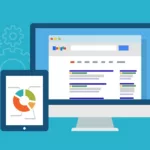So you’ve decided to buy your first Bitcoin, great! But where do you start? In the following article I’ll give you simple instructions on how to choose the best possible Bitcoin exchange out of the wide variety of Bitcoin exchanges out there.
Not all exchanges are created equal
The first thing you need to know is that there are 3 main types of exchanges: Trading platforms, p2p exchanges and brokers.
Trading platforms are websites like Bitstamp and Kraken that connect thousands of buyers and seller automatically via an online platform. You set the price you’re willing to buy at and if the right seller comes along the trade is conducted automatically.
Trading platforms usually have the lowest possible fees for Bitcoin transactions, however they are also not very beginners friendly. Most trading platforms are suitable for more experienced traders and not Bitcoin novices.
Brokers are websites like Coinbase and Coinmama that sell you Bitcoin directly. Meaning you buy the coins “from the site”. Usually brokers will charge a higher price than trading platforms but will have a much easier buying process.
P2p exchanges are sites like Local Bitcoins or Paxful that connect buyers and sellers directly in order for them to negotiate a trade. This sites don’t conduct the trade automatically like the trading platform.
The main advantage of p2p exchanges is the flexibility in execution. For example, you can find many merchants on Local Bitcoins who will sell you Bitcoins for Paypal, while it will be almost impossible to find this anywhere else. The downside of these platforms is that you have to be very careful with who you conduct business, as not all of the site users are verified and legit.
What to look for in an exchange
Now that you know what types of exchanges are out there it’s time to go a bit deeper. Here are the main things you need to be aware of:
Fees – there are usually 3 types of fees an exchange can charge. Deposit fees, transaction fees and withdrawal fees. Make sure you are aware of all of them.
Payment methods – Not all exchanges accept all payment methods. Some accept only wire transfer while others may also accept credit cards or even Paypal (in rare cases).
Verification – Different exchanges require different levels of verification. Some might ask for as little as an email address while others may require a full KYC (know your customer) process that includes copies of IDs, bank statements and more.
Countries supported – Make sure the exchange you’re looking into supports users from you country.
Buying Limits – An exchange will limit your buying amount usually depending on the level of identity verification it required. Make sure the exchange will supply you with sufficient limits to get the amount of coins you’re looking to buy.
Reputation – Last but definitely not least, check out the exchange reputation. Has the exchange been hacked in the past? What are online reviews saying about the exchange? Most importantly, how is the exchange’s customer support in case you get stuck in the process.
Buying your coins
Now that you know what to look for you can pick out the right exchange for you. If you’re just starting out I’d suggest going with a broker, even at a higher cost. Go over the different sections we just reviewed and make sure they fit your needs. Start out with “countries supported” as most of the time that will filter out many candidates.
Keep in mind you’ll probably make some mistakes in your first purchase, we all have. So make sure to buy a small amount of coins in the beginning and only after you feel confident with the process and the selected exchange move to larger amounts.
Once you’re happy with your selection make the purchase, but remember that it’s never wise to leave your Bitcoin on an exchange. As soon as you can it’s recommended that you move the coins off the exchange and into your own Bitcoin wallet.








